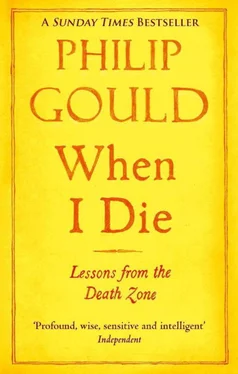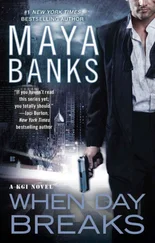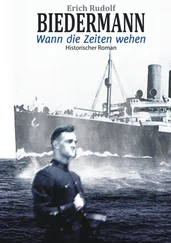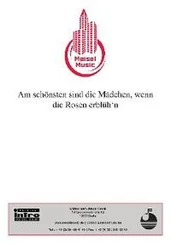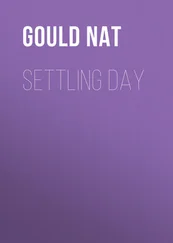He was uneasy about private medicine, particularly in the treatment of cancer, believing it to be corrosive and distortive of clinical priorities. I do not believe he is right, but there is truth in his argument: there is an extraordinary spirit of public service at the absolute heart of the NHS, which is why people value it.
But even Mike was not totally closed-minded on all of this.
He knew Murray Brennan well and admired him, and thought Memorial Sloan-Kettering a remarkable hospital. But he believed that in the end, when it comes to health, private means bad.
In this he was my polar opposite. He was happy and comfortable with private schools, while I am not; he was sceptical of private medicine, while I am much more open to it. Perhaps it was because his father was a reputed surgeon in the NHS and my parents were both teachers in state schools. But he was right about me, I would have been better to have stayed in the NHS.
If only I had listened to Georgia.
The next morning Gail came up and we waited nervously for Mike’s verdict. I was more optimistic because of our meeting the night before, but after so much bad news my capacity for hope had withered somewhat.
Mike immediately made it clear that the operation was possible. Even if surgery was successful, however, I had only a 25 per cent chance of five-year survival. And there was a 30 per cent chance that they would start the operation and not be able to finish it because the tumour could not be removed, which to me was a horrible prospect.
There was about the same risk of removing the tumour and not being able to reconstruct my oesophagus, which meant I would have to have some kind of feeding tube in my throat. This did not seem to worry Gail, who just wanted me alive, tube or not.
A second operation of this sort was taking me into unknown waters. It would be much tougher than the first and there was no way of predicting how difficult it would be, nor in all honesty its impact on my quality of life.
I asked how long I would live if I did not have the surgery. Mike replied: six months to a year. He asked what my decision was: did I want the surgery or not? It was a stupid question; of course I wanted the surgery. I had fought for it for months and now it was going to happen. I did not mind if I walked around with a tube in my neck, I wanted life. He gave me a date – 26 October – and we went home, happy.
* * *
I used the intervening period as best I could, spending a lot of time with my daughters, going on trips with both, and to Venice again with Gail. Grace stayed with me for much of the time, which was wonderful. Georgia was always around. I got as fit as I could, rewrote my letters to my family, and went once again to see the vicar about the funeral. This time I was stronger but sadder. I did not want to leave my family, and especially not my wife.
On the Friday before the operation, Tony came to see me, just as he had on the eve of my previous surgery. He said one of his most precious possessions was a sixth-century ring from Mount Sinai. He gave it to me for luck. I was touched but anxious, certain that I would lose it. I lose things very easily.
I travelled to Newcastle with Gail on Saturday 23 October and arrived at our flat, which was modern and flash, like something out of Footballers’ Wives . It was in the heart of the city and you could see and hear the nightlife. Nothing, not rain or gale force winds or severe snow, stops Newcastle kids from going out at night and having fun. But they were all so friendly, it was impossible not to love it there.
That night we joined in and had dinner surrounded by a crowd of incredibly glamorous-looking young people, easily forty years younger than me. We walked back through the cold, picking our way through students using the pavement as a temporary bed.
The night went well. By now we were old hands at pre-surgery sleeping. The next day we arrived at the oesophageal unit – Ward 36 – exactly on time, as though punctuality would in some way increase my chances.
I was put in a reasonably sized cubicle with a television and a little shower room. And then we waited as a stream of clinicians explained to me how dire my immediate future looked.
This is Mike Griffin’s way: to be totally honest and totally explicit about bad news. One after another they came in: the excellent anaesthetist, Conor Gillan, who said an epidural was the preferred method of pain relief, and that it should work, but might not; Rachel, an outstanding specialist nurse who said it would be tougher than perhaps I thought; and then a representative from the intensive care unit, who said it would be like a kind of torture: deprived of sleep and food for at least a week.
And in the middle of this Mike dropped in, clearly anxious, making it plain that there was a serious chance that the operation would have to be aborted after it had begun. I shared his fear; I hated the thought of waking up to failure.
By the end of the day, I was drained of energy and emotion and Gail had just had too much. We were battered into submission. Mike came one last time, saw Gail and moved to reassure her. When she left I felt lonely. I slept a little but woke often, hoping the morning would come slowly.
Gail arrived at six, and with incredible strength had recovered all her poise. And then we started an absurd domestic row. I, like a fool, had been drinking water during the night, and a nurse had said this might be a problem for the surgery. Gail simply could not believe I was capable of such complete stupidity. But the bickering got us through the next hour.
Then Mike came in, exuding an aura of confidence that completely calmed us down. There were no doubts now, no worries about an aborted operation; he had risen to the moment.
At 8 a.m. they came for me, and for the second time in two years I left Gail for a serious operation. I walked through the corridors leading to the operating theatre with an equal mixture of fear and excitement. There was no escape now. I had to do it, and although I was scared, I was also resolute. I was up for it.
The Bottom of a Murky Sea
I walked into the small pre-surgery room where Conor, the anaesthetist, would administer the epidural. Starting to feel anxious, I held on to the excitement and the determination that was driving me through. But I felt the surgery coming towards me like an express train. There were only moments left.
Courage is supposed to be grace under pressure, but it is really composure in the face of inevitability, being strong not just when the odds favour you, but when they most decidedly do not.
Conor did well with the epidural, but struggled with the boniness of my back and my evident anxiety. At one point he jammed the needle into a rib and the pain was excruciating. I was starting to unravel, but somehow he finished the procedure and then, thankfully, all went blank.
Gail, meanwhile, had to endure another desperate vigil, waiting almost twenty-four hours for me to come round. From the start people were calling and texting, anxious and concerned. But they knew that no news was good news and that the longer the operation went on, the better.
Hour followed hour. After five hours or so Gail went for a walk and bumped into Mike as he took a break. He told her the surgery on the stomach had gone well, and now they had to turn me over and break through into the chest. It was clear that the operation would not now be aborted.
Five hours later, Mike emerged again and told Gail that while the operation had been difficult it had been a complete success. She rushed in to see me. I looked, she said, far more dead than alive, but she sent out an email to all my friends saying that Mike had performed a miracle.
Because of the severity of the surgery they kept me sedated and breathing through a ventilator all night. Gail was struck by the way that the intensive care staff watched me, unwaveringly vigilant. At about six they decided to slowly wake me. I came round in a way distinctively different from my New York experience.
Читать дальше
